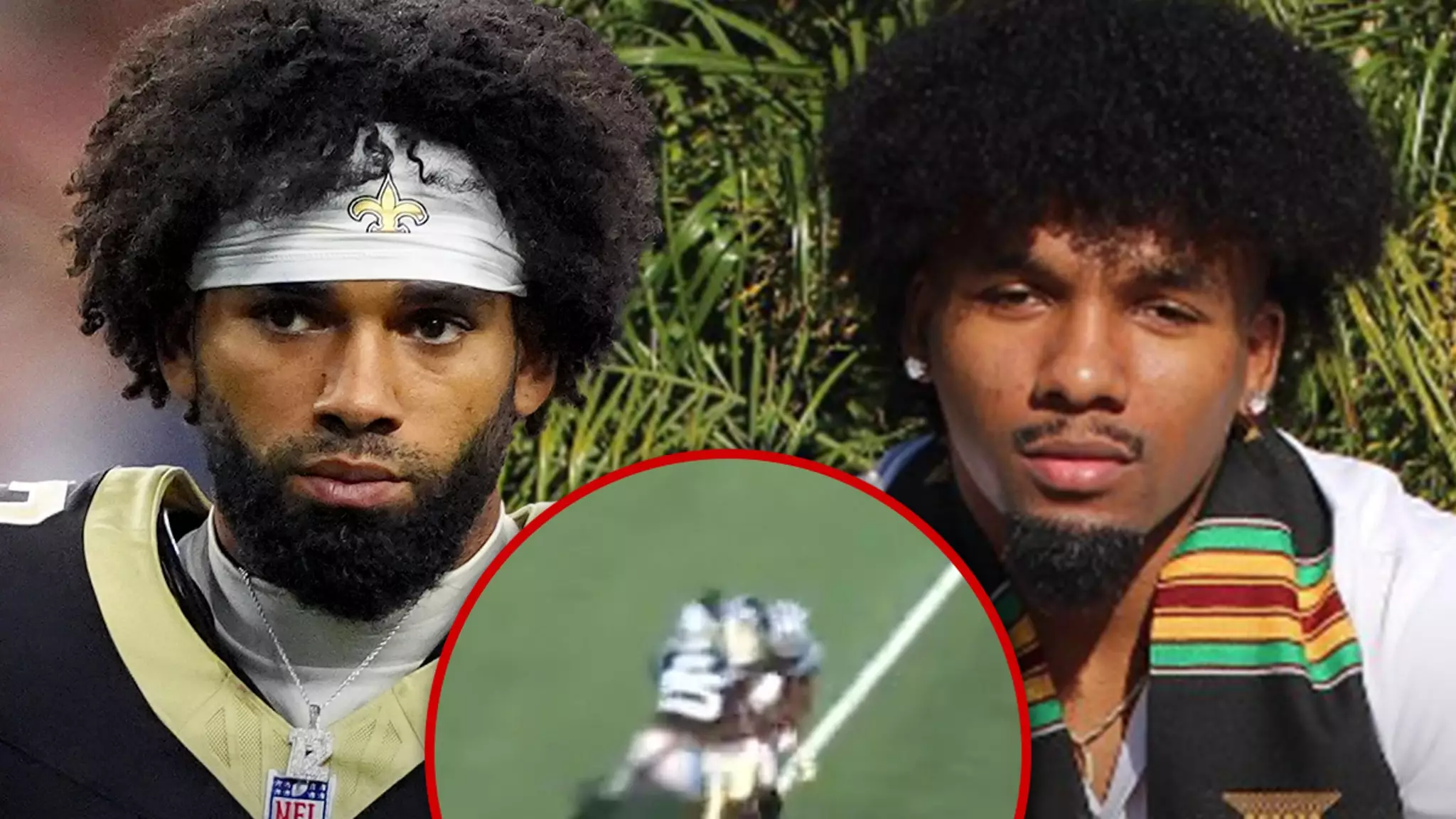The NFL has long been criticized for its handling of player safety, especially concerning head injuries. This issue was brought to the forefront again when Chris Olave of the New Orleans Saints sustained a significant head injury during a game against the Carolina Panthers. The incident occurred in the first quarter, where a pass intended for Olave ended with him being severely struck by safety Xavier Woods. A flag for unnecessary roughness was raised, but such measures often come too late when a player’s health is on the line. The troubling outcome—Olave lying on the field and subsequently being carried off on a stretcher—is emblematic of the larger issues that confront players in high-contact sports.
Following the game, Olave’s brother, Josh, articulated concerns that many are hesitant to voice. His commentary about the fragility of athletic health brought a candid perspective to an issue that is often downplayed. Josh Olave’s assertion that it may not be worth the risk to continue playing in New Orleans encapsulates a growing sentiment among players and their families, questioning the long-term ramifications of repeated head injuries. This situation highlights a pervasive issue where the adrenaline and spotlight of professional sports can overshadow critical health considerations.
But family perspectives are not the only voices in this narrative. Former Saints player Michael Thomas also expressed frustration, indirectly attributing the incident to quarterback Derek Carr’s play. His criticism underscores a frequent tension in the NFL, where the decision-making of one player significantly impacts the safety and performance of others. Thomas’s statements reveal an underlying concern among teammates regarding the importance of cohesive gameplay and decision-making, emphasizing how critical every pass can be—not just for the game score, but for player safety.
Olave’s concussion was the second he had experienced this season and part of a troubling number in his professional career. Each head injury adds to the growing body of evidence linking repeated concussions to long-term cognitive health issues. The debate surrounding players’ rights to protect their health versus the intense pressures of professional expectations continues. It becomes imperative to consider if the current framework in the NFL adequately protects players or if systemic changes are necessary.
While Olave has been cleared to return to his team, the concerns raised by his brother and former teammates should initiate larger conversations regarding player health and safety policies within the league. This incident serves as a reminder that the physical toll of football can have lasting impacts on players far beyond their time on the field. It is essential for the NFL to consider implementing more robust protections for its athletes, fostering an environment where their long-term health is prioritized over immediate gains. Only then will we see a true cultural shift in how we value player safety in professional sports.

